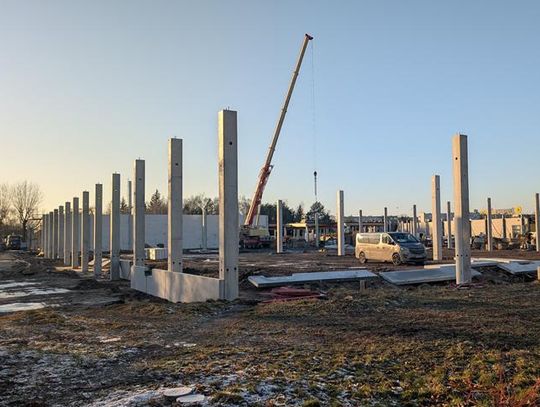How to Find the Best Lawyer for Your Case
When legal trouble strikes—whether it’s a criminal charge, a DUI, a serious traffic violation, or a workplace investigation—you want the best lawyer in your corner. But how do you find the right one? What makes an attorney not just good, but great, for your specific needs?
At McDowell Law Firm, we talk to people every day who feel overwhelmed, unsure of who to trust, and afraid of making the wrong choice. This guide breaks down how to find the best lawyer in Colorado Springs for your case, whether you're in Colorado Springs or anywhere else in Colorado.
1. Identify the Type of Lawyer You Need
The law is broad and complex. Start by narrowing down your search to attorneys who handle cases like yours:
- Criminal defense: DUI, domestic violence, assault, drug charges
- Traffic defense: Reckless driving, speeding, license issues
- Personal injury: Car accidents, slip and fall, wrongful death
- Civil litigation: Contract disputes, defamation, property damage
- Family law: Divorce, custody, child support
If you're facing criminal charges or a DUI, for example, you need a criminal defense lawyer, not a general practitioner or a family lawyer. Look for attorneys who focus their practice in the relevant area of law.
2. Look for Experience That Matters
Experience isn’t just about how long a lawyer has been practicing—it’s about the kind of cases they’ve handled and how frequently they deal with issues like yours.
Ask:
- Have you handled cases similar to mine?
- What were the outcomes?
- How often do you appear in the court where my case will be heard?
For example, if you’re charged with DUI in Colorado Springs, you want a lawyer who regularly defends DUI cases in El Paso County Court—someone who knows the local judges, prosecutors, and procedures.
3. Check Credentials and Licensing
Make sure the attorney is licensed and in good standing with the Colorado Supreme Court Office of Attorney Regulation Counsel. You can verify this on the Colorado Attorney Search page.
Also, check for:
- Membership in professional organizations (e.g., Colorado Criminal Defense Bar, NACDL)
- Awards or peer recognition (e.g., Super Lawyers, Avvo rating, Martindale-Hubbell)
4. Read Reviews and Get Referrals
Online reviews aren’t everything, but they’re a helpful starting point. Google reviews, Avvo, Yelp, and legal directories can give you a sense of how past clients felt about working with a particular attorney.
Pay attention to:
- Responsiveness and communication
- Success outcomes
- Compassion and professionalism
You can also ask friends, coworkers, or other attorneys for personal referrals. Often, the best lawyers are found through word of mouth.
5. Schedule a Consultation
Most lawyers offer an initial consultation—either free or for a modest fee. Use this opportunity to get a feel for how the attorney communicates, thinks about your case, and treats you as a person.
During your consultation, ask:
- What is your approach to my type of case?
- What are the possible outcomes?
- What strategy would you recommend?
- What is your fee structure?
Be cautious if the attorney guarantees a result—no lawyer can promise to win a case. Instead, look for honesty, clarity, and confidence based on experience.
6. Understand Fees and Billing
Legal fees vary widely depending on the complexity of your case, the lawyer’s experience, and whether you’re paying a flat fee, hourly rate, or contingency (usually in personal injury cases).
Common billing structures:
- Flat fee: Common in DUI or criminal cases, where costs are predictable.
- Hourly rate: Often used in litigation or legal disputes.
- Contingency fee: The lawyer takes a percentage of any money awarded to you (common in injury claims).
Ask for a written agreement outlining what services are included, what may cost extra, and how billing works.
7. Trust Your Instincts
You’re hiring someone to protect your future, reputation, and possibly your freedom. If a lawyer makes you feel rushed, disrespected, or confused, keep looking. The best lawyer for you is someone who:
- Listens carefully
- Speaks clearly and directly
- Answers your questions
- Makes you feel like a priority—not a number
8. Ask About Communication
One of the most common complaints people have about lawyers is poor communication. Find out how the attorney stays in touch with clients:
- Will I be dealing with you directly, or a paralegal?
- How quickly do you return calls or emails?
- Will I get regular updates on my case?
You deserve transparency and respect throughout the process.
9. Check Their Courtroom Experience
Not all lawyers are trial lawyers. If there’s a chance your case will go to court, you need someone who’s comfortable and effective in front of a judge or jury.
Ask:
- How often do you take cases to trial?
- What’s your courtroom style?
- Can you share a recent success?
At McDowell Law Firm, our trial background is one of the things that sets us apart. Whether through negotiation or litigation, we fight to protect your rights.
Final Thoughts: The Best Lawyer Is the Right Lawyer for You
Finding the best lawyer doesn’t mean hiring the flashiest attorney or the one with the biggest billboard. It means choosing someone with the right experience, skill set, values, and communication style to represent you effectively.
If you're in Colorado Springs or anywhere in the state and facing a legal challenge, the team at McDowell Law Firm is ready to help. We take the time to understand your situation, explain your options, and fight for your future.
(tekst sponsorowany)











Napisz komentarz
Komentarze